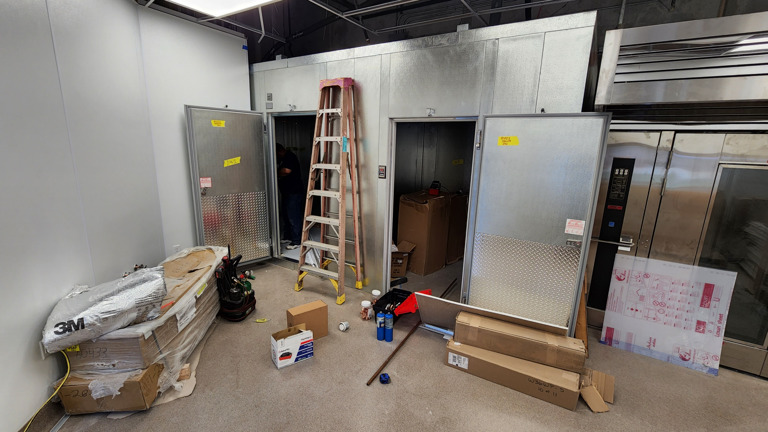
Concrete contractors in North Carolina need to be insured. To ensure your safety and financial security, contractors in North Carolina should be licensed and insured. The state's moderate temperatures and low humidity are ideal for concrete-related work. Find a complete list of North Carolina concrete companies here. To learn more about hiring a concrete contractor, read on! But before you make your final decision, check out these tips:
Experience is crucial for concrete contractors
Concrete contractors in North Carolina may need experience. A bachelor's degree might not be necessary. You can obtain a formal apprenticeship through unions or technical schools. These programs will help you gain specific skills and experience that you can use when you are ready to begin work. This type is typically three to 4 years long and will include both classroom training and practical experience. It is also beneficial to be a member of the Construction Industry Association (CIA).
North Carolina concrete contractors should have references from former clients. Professional certifications are another important thing to look for in contractors. Some certifications are mandatory for certain projects, while others are merely a way to distinguish yourself from competitors. The type of concrete contractor you want to work with should dictate the certifications you choose. The information you have about these contractors will help make an informed decision. It will also give you a better idea on how to choose the concrete contractor. It is essential to have the right certifications. This will help you succeed.

Low humidity
Low humidity can cause many health problems. Cold weather can lead to sore throats and cracked lip. Sometimes you might even experience nosebleeds. This problem is more severe in winter, early spring and autumn when the humidity can be very low. The presence of static electricity may indicate low humidity. To avoid this problem, take a few minutes to read up on the best way to control it.
You should consider the climate when you are looking for a North Carolina concrete company. Although summer is a great time to start construction projects, crews and managers want longer days and more pleasant weather. Although concrete is not a problem in summer, it can be problematic if the weather is too hot. The mix and the installation process might need to be altered if the temperature reaches 90 degrees or above to prevent any deterioration.
Mild temperatures
Although springtime is a great time for concrete projects, it can also be a busy time for concrete contractors. Fulford & Jones, Inc. is aware of this problem and works closely with customers to minimize scheduling conflicts. Because these conditions are essential for high-quality concrete, they also prefer mild temperatures. A contractor who uses low humidity or low temperature techniques will get the best results for your concrete project.
Liability insurance
You will need general liability insurance if you are a concrete contractor. General liability insurance covers you in the event you are sued for an injury or accident on the job. Construction sites are dangerous, and equipment used in concrete construction can cause injuries. You may be responsible for the medical bills and wage replacement of anyone who is injured on your job. This can be avoided by purchasing liability insurance.

Worker's compensation insurance is required in addition to liability insurance. Workers' compensation insurance is required by most states. It's a good idea for employees to have employee practice liability insurance. This can cover legal settlements and defense costs. Although liability insurance for concrete contractors can be complicated in North Carolina, it is worth the effort to protect yourself.
FAQ
Do I require a legal representative in order to sign my Service Agreements
No. You do not need to appoint a legal representative in order to sign your service agreements. As a precaution, however, it is a good idea to appoint one.
A legal representative is someone who acts on behalf of another person. If you are a contractor, it may be a good idea to appoint someone you trust to represent you.
This could involve hiring a solicitor, accountant, or other professional. It could also be the appointment of someone to look out for your business interests.
In most cases, the client is responsible for appointing a legal agent. Sometimes, however the vendor hires a legal agent.
In each case, having a legal representation means you are legally protected.
Who will pay for the service
Your SCA will indicate who is responsible in paying for the service. You may be able to file a claim for compensation against the court if the service provider fails to pay in full.
Where can I find more information about building permits?
You can contact your local government authority, such as the NSW Local Government Association, or your local realty agent. They should be available to help you determine the right steps to take to get building permission.
Statistics
- Don't take their anger personally, they are mad about the situation 99% of the time. (activatemylicense.com)
- (1) Except as provided in paragraphs (a)(4) and (a)(8) of this section, if the estimated amount of the contract or subcontract is $10 million or more, the contracting officer shall request clearance from the appropriate OFCCP regional office before- (acquisition.gov)
- (v) Place or places of performance of the prime contract and first-tier subcontracts estimated at $10 million or more, if known. (acquisition.gov)
- (d) Contractor disputes related to compliance with its obligation shall be handled according to the rules, regulations, and relevant orders of the Secretary of Labor (see 41 CFR60-1.1). (acquisition.gov)
- Depending on the client's trustworthiness and financial stability, a deposit is usually 10 to 50% of the total contract amount. (lawdepot.com)
External Links
How To
What should a service contract include?
A Service Agreement (SA) is essential to any business relationship. It will outline what you expect and how it will be achieved. The SA also describes when and how you expect the other side to meet its contractual obligations.
These are the key components of a successful SA:
-
The scope of both the work and the services required.
-
Particulars of the payment terms, including delivery dates and start dates.
-
An agreed price for your project.
-
Any additional charges, like VAT, etc.
-
Whether there are other topics that require discussion.
-
Who will be held responsible for any problems that may arise on the job?
-
How disputes can be resolved
-
What happens if one of the parties breaches the contract?
-
What happens in the case of a dispute?
-
When will the contract become effective?
-
What happens if one party fails to perform?
-
What length of time will you be required to pay invoices
-
Who pays for things such as travel expenses?
-
Where the money comes.
-
What happens if the client changes his mind about the project?
-
What happens if your supplier doesn't show up?
-
Who has access during construction to the site?
-
What happens when the customer cancels a project?
-
What happens when the product is defective?
-
What happens if a manufacturer refuses to provide parts?
-
What happens if equipment fails?
-
What happens if a project takes longer than expected?
-
What happens if you don't complete the work within the set timeframe?
-
What happens if the final product isn't up to expectations?
-
What happens if the cost overruns.
-
What happens when the materials are not delivered in time?
-
What happens if your material arrives damaged?
-
What happens if products do not meet the standards?
-
What happens if the job gets cancelled before it is completed?
-
What happens if the business goes under?